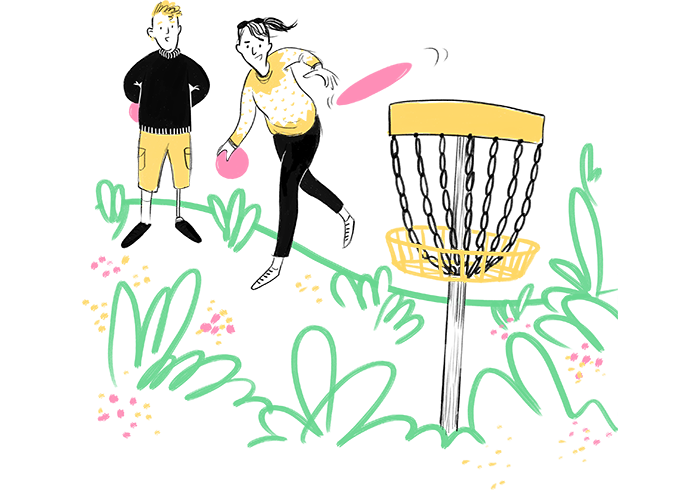Public Health in Reykjavík
Reykjavík Public Health Policy until 2030: Healthy Reykjavík: "The city I want to live in" was approved by Reykjavík City Council on October 5, 2021. Work on the Policy took place over the winter of 2020-2021, in collaboration with city residents, the Director of Health, and the Primary Care of the Capital Area. Following a consultation process in summer 2021, the City Council approved the policy.
Reykjavík City Public Health Policy
The core of Reykjavík's Public Health Policy is to increase years of good health and well-being for residents. It aims to create an environment that promotes equality, health, and happiness so all residents can enjoy life in a city where they feel good living.
The Public Health Policy is one of the City's main policies, integrated with others as nearly all City operations directly or indirectly affect residents' health and well-being. The Policy supports goals of the Green Deal, Reykjavík City's strategic plan to 2030, aiming for economic, environmental, and social sustainability.
The Policy's vision is for Reykjavík to be a health-promoting, sustainable, and diverse urban community fostering safety, equality, active participation, and well-being for all.
The guiding principle for Reykjavík's public health work is to weave health promotion into all City operations and policies, based on best current knowledge and experience, without causing harm.
The Policy has three main goals:
- Improved health and well-being at all life stages,
- Health and well-being equity - no one left behind
- Health and well-being guide all Reykjavík City operations.
Action plan
To achieve policy goals, an action plan is set for a few years at a time, based on current assessments of residents' health and well-being challenges. The first action plan of the Policy covers 2021-2023.
Appendices
In addition to the Policy's action plan, numerous actions under other Reykjavík City policies and policy areas contribute to improved public health in Reykjavík. An overview of these actions, operations, status assessments, and more can be found in the policy appendices.
Public health information
- Public health indicators from the Directorate of Health 2024
- Public health indicators 2023
- Public health indicators 2022
- Public health indicators 2021
- Public health indicators 2020
- Public health indicators 2019
- Health and Well-being of LGBT+ People | Reykjavík
- Activity and wellbeing of older adults
- Social landscape - conference recording
- Social landscape in Reykjavík
- Public health assessment of COVID-19 impacts in Reykjavík
- Public health assessment of CityLine's first phase
- Prevention conference in Reykjavík 2025
- Stay Smart
Reykjavík is one of Europe's healthy cities
In May 2021, Reykjavík City joined the European Healthy Cities Network, a World Health Organization initiative. Reykjavík applied for membership in early 2020, but application reviews were delayed due to the COVID-19 pandemic. Membership commits the City to various public health projects in Reykjavík.

Introduction to Public Health Policy 2020
Issue
- Mayor's address on public health in Reykjavík
Dagur B. Eggertsson, Mayor - Reykjavík Health City draft Public Health Policy to 2030
Dóra Guðrún Guðmundsdóttir, head of public health at the Directorate of Health
Brief presentations
- Better sleep: foundation of health
Dr. Erla Björnsdóttir, sleep specialist - Health-promoting schools in a health-promoting city
Ólöf Kristín Sívertsen, project manager at the Department of Education & Youth - Recreation in Breiðholt – pilot project on increased child participation in sports and leisure activities
Þráinn Hafsteinsson, recreation and social capital project manager in Breiðholt - Neighborhood planning and public health
Ævar Harðarson, head of Reykjavík Neighborhood Planning